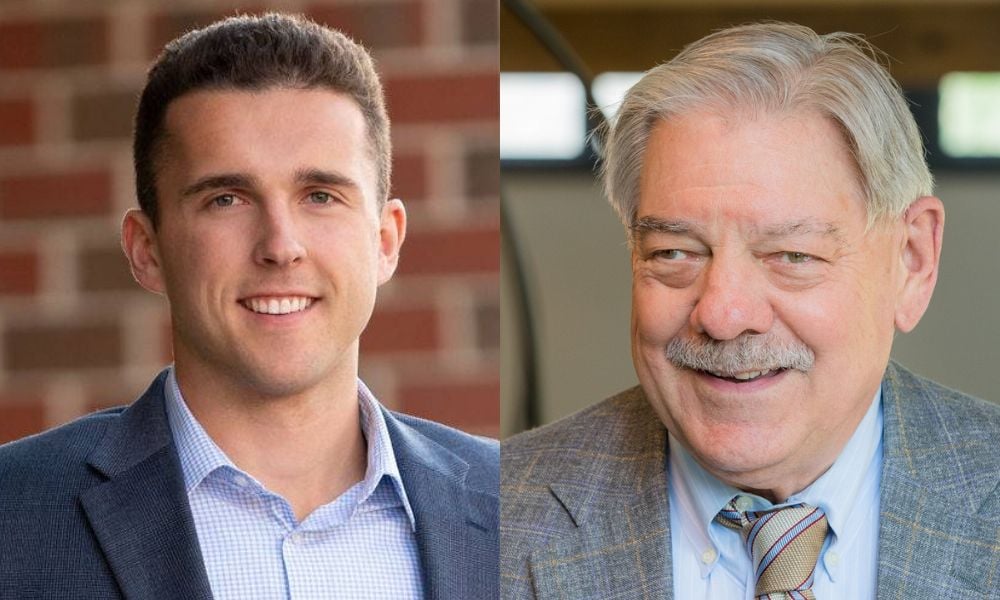

It’s no secret there’s a great event coming that’s on everyone’s minds. Those not preparing for the Great Wealth Transfer, specifically RIAs, just might end up dooming themselves and their firm.
Schwab on Tuesday released results of their Independent Advisor Outlook Study 2024 which found tech and AI is propelling the RIA industry fast into the future. And as the RIA industry matures, its path to growth must evolve as well.
Jack Heintzelman, financial advisor at Boston Wealth, an RIA in Boston, emphasizes that while firms are aware of the challenge, many have yet to implement the necessary solutions.
“A lot of firms are actually thinking about it. It's just the transfer has yet to happen, and we're not quite sure exactly what it's going to look like,” he says. “Firms are just slower to adopt some of these things, because they know it's they know it's coming at some point, but it's not here right now so there’s no real urgency.”
“The RIA value proposition remains strong for advisors and clients alike, but the industry will need to continually innovate to stay ahead of traditional channels – especially as the Great Wealth Transfer commences,” said the Schwab report.
The key to innovate, Heintzelman says, is to meet the next generation of clients “where they are.” He asserts that next-gen clients want advisors who are using the same technology they’re using and getting an education with the focus on financial planning and emotional behavior.
“They don't want someone that's just going to show them that they have the best stocks and the best performances. They want an advisor that's going to understand their needs be able to provide services outside of just investment management,” asserts Heintzelman, noting this includes tax and estate in charitable gifting and financial literacy.
Chuck Failla agrees wholeheartedly.
“That certainly doesn’t resonate with the next gen clients or the kids of clients,” the CEO and founder of Sovereign Financial, a New York-based RIA, says. “They're going to want to hear about planning, coaching, behavioral finance.”
“One of the things we've most recently added to our shop is the idea of estate planning and estate organization.”
Equally important is the need for diversity within advisory firms, Heintzelman added.
“You need this diverse group of community advisors, the next generation of advisors, females, males, and different minorities to really relate with the clients that they're looking that you’re going to be eventually transferring that wealth to.”
That’s why some advisors have been proactively working to develop relationships with multiple generations of clients' families, including their children and grandchildren, which has helped ensure continuity and retention of assets as wealth is transferred.
“We've ramped up our efforts in the last two years to reach out to beneficiaries and family members ahead of time, rather than waiting until clients pass away," highlighted Dave Demming, president and founder of Demming Financial Services, an RIA based in Ohio.
“Why should we wait until people die to deal with their beneficiaries, and most frequently, their family, their kids and grandkids? I wouldn't say we perfected it but we certainly ramped it up dramatically.”
He admits because the firm has been persistent and consistent, “and as we've gotten bigger, our leverages and credibility has grown, which gives us an edge over things.”
The great wealth transfer is “an interesting thing,” says Failla, comparing it to “a double-edged sword.”
“Growth is great, but growth comes with growing pains,” he says. “Getting yourself efficient is a really big goal.”
To streamline their operations and enhance efficiency, Failla is also exploring innovative technological solutions as he points to Sovereign's plan to establish an in-house data warehouse.
This will consolidate data from various platforms and enable advisors to seamlessly access the information they need to serve clients.
Demming’s advice for the newly established financial planners who are trying to work into the industry, “is to develop a system that you can grow and control what you're doing,” he says.
Being an RIA, he added, has never been about purely investing people. “It's about taking care of their lives and being an integral part of that.”
“It's a matter of command, and it’s also one of the reasons why I'm still working at my age, because I find it very rewarding and satisfying to see the progression and the stories with these people.”

US wealth advisory business will get international footprint boost with new tie-ups.

New research shows physicians start their careers at least $200K in debt.

By listening for what truly matters and where clients want to make a difference, advisors can avoid politics and help build more personal strategies.

JPMorgan and RBC have also welcomed ex-UBS advisors in Texas, while Steward Partners and SpirePoint make new additions in the Sun Belt.

Counsel representing Lisa Cook argued the president's pattern of publicly blasting the Fed calls the foundation for her firing into question.
Orion's Tom Wilson on delivering coordinated, high-touch service in a world where returns alone no longer set you apart.
Barely a decade old, registered index-linked annuities have quickly surged in popularity, thanks to their unique blend of protection and growth potential—an appealing option for investors looking to chart a steadier course through today's choppy market waters, says Myles Lambert, Brighthouse Financial.
